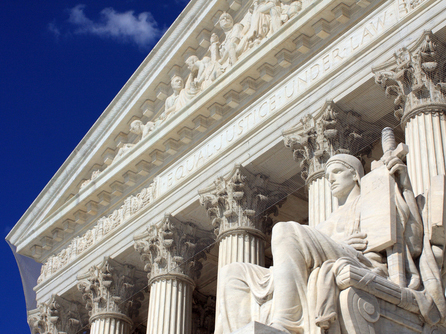
On June 3, 2019, the United States Supreme Court issued its decision in Fort Bend County, Texas v. Davis, resolving a circuit split regarding whether Title VII’s charge-filing requirement with the Equal Employment Opportunity Commission (“EEOC”), or equivalent state agency, is jurisdictional. The Supreme Court ruled unanimously that Title VII’s charge-filing instruction is not jurisdictional; rather, it is a procedural prescription which is mandatory if timely raised, but subject to forfeiture if tardily asserted.
Background
Lois Davis worked in information technology for Fort Bend County, Texas (“Fort Bend”). During her employment, she submitted an intake questionnaire and charge of discrimination alleging sexual harassment and retaliation for reporting sexual harassment. While her charge was pending, Davis’ supervisor told her to report to work on an upcoming Sunday. Davis informed her supervisor that she had a commitment at church that day, and when she did not show up to work, she was terminated. Davis then attempted to supplement the allegations in her charge with her religious discrimination claim through a handwritten update to her intake questionnaire. However, she did not make any changes to the formal charge document to include her religious discrimination claim. A few months later, Davis received her right to sue letter and commenced her action in federal district court alleging discrimination on the basis of religion and retaliation for reporting sexual harassment.
Years into litigation, Fort Bend asserted for the first time that the district court lacked jurisdiction to adjudicate Davis’ religious discrimination claim because she had not stated such a claim in her EEOC charge. The district court agreed and granted Fort Bend’s motion to dismiss. The Fifth Circuit reversed, finding that the charge requirement is not jurisdictional, but a prudential prerequisite to suit which was forfeited because Fort Bend did not timely raise the rule. Fort Bend petitioned for certiorari in the Supreme Court.
The Supreme Court’s Ruling
Affirming the Fifth Circuit’s judgment, the Supreme Court held that the charge-filing requirement is a non-jurisdictional claim processing rule. The Supreme Court explained that “jurisdictional” is generally reserved for prescriptions delineating the classes of cases a court may entertain (subject-matter jurisdiction) and the persons over whom the court may exercise adjudicatory authority (personal jurisdiction). Title VII’s charge-filing requirement is not jurisdictional. Rather, it is a claim-processing rule, which requires parties to take certain procedural steps in, or prior to, litigation, which may be mandatory in the sense that a court must enforce the rule if timely raised. In other words, the charge-filing requirement – a mandatory rule – is forfeited if not timely asserted. The decision, however, does not address what is considered a timely-raised objection and whether mandatory claim processing rules may ever be subject to equitable exceptions.
The Supreme Court’s ruling does not nullify Title VII’s charge-filing requirement. The Supreme Court acknowledged that “the charge-filing requirement is non-jurisdictional gives plaintiffs scant incentive to skirt the instruction. Defendants, after all, have good reason promptly to raise an objection that may rid them of the lawsuit filed against them. A Title VII complainant would be foolhardy consciously to take the risk that the employer would forgo a potentially dispositive defense.” In practice, an employer should promptly review administrative charge documents to determine whether any claims can be dismissed as a result of plaintiff’s failure to exhaust administrative remedies.

